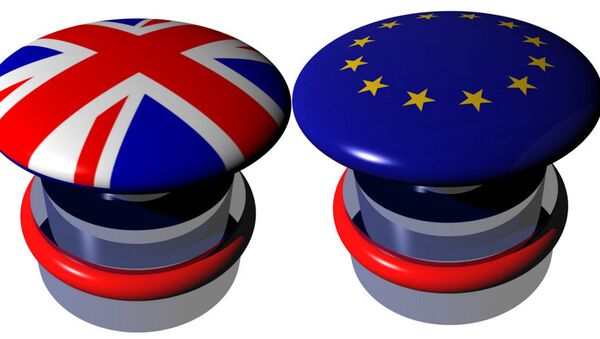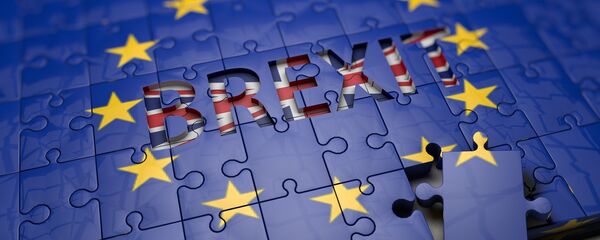The big question is: How can a party calling itself "national" demand freedom from Westminster, but not from Brussels?
The SNP surely had a more intellectually coherent stance forty-odd years ago, when its Parliamentary leader Donald Stewart, said that the EEC "represents everything our party has fought against: centralization, undemocratic procedures, power politics and a fetish for abolishing cultural differences."
Kenneth Bell, would, I'm sure, have been a strong Stewart supporter.
In the essay, A Scottish Brexit, written in May 2016, Bell urged those who had voted "Yes" in the Indy ref of 2014, to go against the advice of Nicola Sturgeon and the SNP leadership and vote "Leave" in the euro referendum of the following month. The benefits of Scotland saying a hearty "Guid-bye" to Brussels would be immense.
"An independent Scotland, if it came about, would control not just the vast offshore oilfields, but the bulk of Europe's fishing waters… those waters could provide employment for an army of Scottish fishermen under a government that could forbid foreign fishing fleets from touching them," Bell writes.
He points out that at present fishing protection is handled by Holyrood (under the orders of the EU) and not by Westminster. So the key to Scotland being able to regain control of its own waters — is exiting the EU.
"Think about that for a moment and think about the wealth that is swimming around under Scotland's seas that will entirely the responsibility of Edinburgh."
Bell says the government of a truly independent Scotland could legislate to reserve most or even all of the fishing bounty to Scottish boats, leading to a great increase in employment. "Shipyards would be inundated with orders for new fishing boats… the skippers of the new vessels would be begging school leavers to sign up as fishermen."
To enforce the system, the Royal Scots Navy (sailing the seas for the first time since 1707) could be reformed "to check the licences of any foreign vessels" that were allowed into Scottish seas.
Bell claims that reclaiming control of its own fishing waters is what Americans would call a "no-brainer," yet the SNP leadership remain deaf to such ideas.
Looking forward to publishing 'Scotland's Place in Europe' — the first plan anywhere in UK for dealing with Brexit. pic.twitter.com/5GZ6jAeUQV
— Nicola Sturgeon (@NicolaSturgeon) December 20, 2016
In fact, Scots only have to travel to Norway to see how a country in the north of Europe, with oil and fishing waters, is better off outside the EU than in it.
The SNP's love affair with Brussels is indeed hard to fathom, and it could, in Bell's view, eventually prove disastrous. The party's line during the 2014 Indy ref was that Scotland would automatically remain a member of the EU, if Scots voted to cede from the rest of the UK.
But that point is still not clear. In January, the leader of the largest group of Spanish MEPs, Esteban Gonzalez Pons, warned that an independent Scotland would have to queue up behind Montenegro, Serbia, Bosnia and Turkey, if it then applied for EU membership..
Esteban Gonzalez Pons, who leads Spanish MEPs in European Parliament's largest grouping,on prospect of single market membership for Scotland pic.twitter.com/PaxjCCpOW4
— Michael Blackley (@Mike_Blackley) January 31, 2017
If Scotland did have to reapply for EU membership, say after a successful "Yes" vote in the next Indy ref, or after a Westminster-led Brexit, then the "wolves in all the major capitals," as Bell describes them, are going to demand their pound of flesh.
"Scotland's position will be very weak indeed," he argues.
"The country would not appear at the negotiating table as a confident, modern democracy but as a beggar, leading to be allowed entry under whatever terms it can get… As any Scotsman knows, when the opponent is on his knees, this is the time to start kicking him in the head… Scotland will be on its knees and the big power kicking will be brutal indeed," Bell warns.
Then there's the harsh austerity policies that Brussels is sure to insist upon. The EU demands that member states have a deficit-to-GDP ratio of no higher than 3%. Scotland's is around 10%.
To get its deficit down to EU-approved levels, the Scottish government would have to hike taxes and/or slash public spending, destroying the achievements of the country's welfare state, which includes free prescriptions, free personal care for the elderly and continued council house building.
Is that what progressives in Scotland really want?
Even if Scotland was allowed to automatically stay in the EU, it is likely to be at a disadvantage. Although its universities have benefited from EU research funding, Scotland, like the UK as a whole, is a net contributor to the EU budget.
The SNP — lest we forget — swept the board in the 2015 general election on an anti-austerity platform, yet ironically their support for the EU could lead to a new era of swingeing cuts.
With its oil and its fish, Scotland could become another Norway. But if the wrong choices are made, it could become the new Greece.
Bell doesn't go into this in his book — but perhaps it could be the theme of his next collection.
Follow Neil Clark on Twitter
Support his Anti-Stalker Crowdfund







